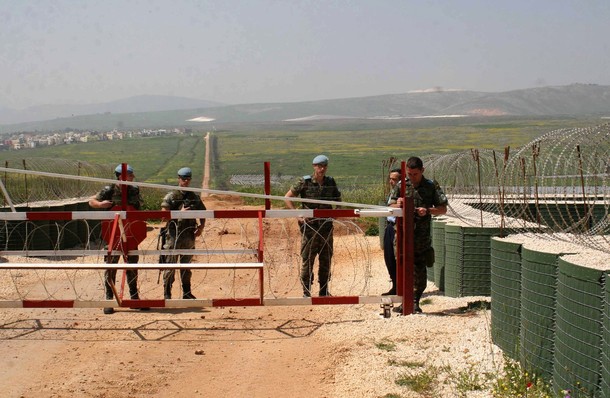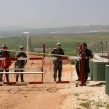
Turkish Government and Opposition Remain Divided over Foreign Policy
Publication: Eurasia Daily Monitor Volume: 6 Issue: 121
By:

On June 23, the Turkish Parliament approved a motion that will authorize the government to renew the term of the Turkish peacekeeping force contributing to the U.N. Interim Force in Lebanon (UNIFIL), for one more year, effective from September 5. The parliamentary discussions preceding the vote demonstrate that differences remain between the governing AKP and the opposition parties in regards to their approaches to foreign policy.
Reflecting its growing involvement in Middle Eastern politics, Turkey played an active role during the 2006 summer war between Israel and Hezbollah. To pacify Lebanon following the Israeli military strikes, the U.N. Security Council enhanced the mandate of UNIFIL in August 2006 to undertake additional tasks, including monitoring the cessation of hostilities and helping the Lebanese armed forces to expand its authority in the south (www.unifil.unmissions.org).
European nations expressed an interest in fielding a peacekeeping force to prevent the destabilization of the entire region. Given the Turkish army’s experience in peacekeeping operations, and Turkey’s ties to both Israel and Arab nations, there emerged an expectation that Turkey could play a central role in this initiative. The participation of Turkey as a Muslim nation was seen as necessary in order to prevent the impression that the international force was seeking to impose a "Western" plan. It was even suggested that Turkey could lead the international force, on its own or jointly with France. Although Israel reportedly favored this idea, Hezbollah sources did not welcome it (Yeni Safak, June 25, 2006).
Moreover, Turkish public opinion was strongly opposed to the participation of Turkish soldiers in such a controversial mission. Since this international force was perceived as a measure to contain Hezbollah, there were concerns that the Turkish forces might be forced to engage in armed conflict with Hezbollah militants, which might have complicated Turkey’s friendly relations with Arab states. Given the growing anti-American sentiments within Turkish society, this force was portrayed as an occupation force acting on behalf of Israel (Yeni Asya, August 14, 2006). Despite this domestic opposition, the government preferred to cooperate with the international community. It conducted a careful risk analysis, and the then Foreign Minister Abdullah Gul consulted other regional actors and the major political factions in Lebanon to gauge their reactions to any military deployment (Zaman, August 15, 2006; Aksam, September 3, 2006).
As a compromise solution, Ankara agreed to contribute to the UNIFIL with non-combat units, and stressed that it would not participate in the demilitarization of Hezbollah. The Turkish Parliament approved the deployment in September 2006, following intense discussions. The opposition parties voted against the motion, but given its parliamentary majority, the AKP was able to obtain the necessary authorization (Turkiye, September 6, 2006). The Turkish contingent was deployed to Lebanon in October 2006 (Sabah, October 12, 2006), and the mandate of the force was renewed in 2007 and 2008. The Turkish armed forces have contributed patrol boats to the UNIFIL Maritime Task Force and a military engineering company to assist the reconstruction efforts in Lebanon (www.tsk.tr; www.unifil.unmissions.org).
As the mandate of the Turkish contingent expires in September, the government forwarded a motion to the parliament seeking an extension. Since the AKP’s recent foreign policy initiatives have encountered strong resistance from opposition parties, the fate of the motion was unclear. In another recent parliamentary debate, the main opposition Republican People’s Party (CHP), supported by the Nationalist Movement Party (MHP) and the pro-Kurdish Democratic Society Party (DTP), literally waged a "war of attrition" to prevent the passage of a bill concerning mine clearance on the Turkish-Syrian border. The bill eventually passed after these delays, only after the Prime Minister Recep Tayyip Erdogan pressured the deputies from his party (EDM, May 21, 29, June 5).
No major discussions emerged over the governmental motion extending the mandate of the Turkish contingent, which might be related to its forces not encountering any serious issues thus far. The CHP continued to approach the UNIFIL from a skeptical perspective. The CHP speaker maintained that the UNIFIL’s mission is not limited to the provision of humanitarian services and ensuring regional stability alone. Rather, its purpose is to provide conditions for a future military operation to "eliminate Hezbollah and… act as a shield to protect Israel in the event of such an operation." He also maintained that despite U.S. President Barack Obama’s rhetoric on mending fences with Turkey, he has not been sensitive to Turkey’s interests in the Middle East, most importantly regarding the PKK issue. The MHP speaker praised the achievements of the Turkish force, but restated his criticism of the policies pursued by other international actors toward the Middle East. The opposition parties failed to oppose the government’s motion, but demanded that it act more assertively to protect Turkish interests vis-à-vis international actors -in particular the United States. In his address to parliament, Foreign Minister Ahmet Davutoglu emphasized that Turkey’s contributions to Lebanon has to be discussed in the context of its new strategy of contributing to global and regional peace. Davutoglu maintained that, both through its soft power and military capabilities, "Turkey is playing an order instituting role" in its region (www.tbmm.gov.tr, June 23).
Nonetheless, the parliamentary discussions highlighted the underlying divisions between the AKP and the opposition parties, over their positions on how to harmonize Turkey’s regional policies with those of other global actors. The opposition maintains a deep-rooted skepticism toward the agendas of international actors in the Middle East. In contrast, the AKP considers Turkey’s cooperation with the international institutions and Western nations as complementary to its own regional policies. As the AKP strives to promote the country’s regional power status, it triggers suspicions among some circles in the West that view this new policy as a departure from Turkey’s Western orientation. However, on the domestic front, the AKP’s concern not to challenge the interests of international actors, exposes it to criticism for failing to adequately protect its national interests. How Davutoglu manages this "double-challenge," might prove a major test of his skills as a geostrategist.




